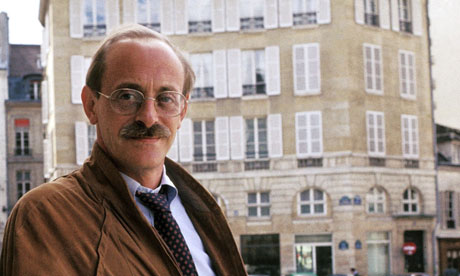
In the late 1960s the aspiring Italian writer Antonio Tabucchi, who has died of cancer aged 68, went round Europe in the footsteps of his favourite literary figures. In Paris he found the poem Tabacaria (The Tobacco Shop, 1928) by the Portuguese Fernando Pessoa. Its mixture of pessimism and measured hope – "I have within me all the dreams of the world" – proved to be a defining moment. In addition to his fictional writing, Tabucchi translated Pessoa and other Portuguese writers into Italian and decided to live half the year in Portugal.
He became so familiar with the language that he wrote one of his books, Requiem, uma Alucinaçaõ (Requiem: A Hallucination, 1991), in it. This immersion into another culture and language has evoked comparisons with Joseph Conrad, whose work Tabucchi admired.
After his death, the Portuguese culture secretary declared: "He was the most Portuguese of all Italians." Nonetheless, he remained an incisive commentator on Italian life.
Born in Pisa, Tabucchi, whose father was a horse trader, studied literature and philosophy at the city's university. At a time of experiment for Italian literature, he attracted attention with Piazza d'Italia (1975), a subtle, multilevelled account of the lives of three generations of Tuscan anarchists, through his remarkable precision with language and ability to draw inspiration from the recesses of Italian history.
Tabucchi became increasingly adept at short fiction. The short stories Piccoli Equivoci Senza Importanza (1985), translated by Frances Frenaye as Little Misunderstandings of No Importance, alerted UK and US readers to his qualities. However, it was his novel Sostiene Pereira (Pereira Maintains, 1994), which really established him on the continent. Set in Portugal in 1938, during the dictatorship of António Salazar, it tells of Pereira, a journalist who demonstrates an emerging commitment to truth and to the historical responsibilities of the intellectual.
The theme of press freedom resonated widely at the time, and has continued to since. Silvio Berlusconi's dominance of the media helped him to electoral success in Italy in the year the book was published, and its impact was sustained by the 1995 film version, with Marcello Mastroianni in one of his final roles. A number of other works by Tabucchi were adapted for the stage and screen. These included Notturno Indiano (Indian Nocturne, 1984), which describes the journey of its narrator through India in a mysterious, metaphysical search for a lost friend. Directed by Alain Corneau, Nocturne Indien, the 1989 film version starring Jean-Hugues Anglade, effectively captured the melancholy of the original.
In the aftermath of the controversy following the publication of Salman Rushdie's The Satanic Verses (1988), Tabucchi was one of the founder members, in 1993, of the International Parliament of Writers, an organisation that highlights censorship and incursions into writers' freedom around the world. He contributed articles to its journal, Autodafé, writing in its first issue what Margaret Drabble described as an "eloquent and elegant essay on the dangers of promoting a national language as a political instrument". While a lover of Portugal, he was no fan of misplaced linguistic nationalism.
Tabucchi's writings have been translated into 40 languages, including Irish. He was awarded many literary prizes, and in France he was made a Chevalier des Arts et des Lettres.
As was clear from his fiction, Tabucchi was committed to history and politics and he felt that he should play his part in discussions of the state of contemporary Italy. Although his frequent denunciations of Berlusconi placed him in distinguished company, Tabucchi's interventions on the interpretation of Italian history are more significant. He had no truck with the widespread attempts to rehabilitate fascism and Mussolini in the 1990s.
Interviewed in La Stampa he declared that: "This correction of history which is frequently produced by a rich, cynical society, totally insensitive to moral questions, is repellent to me … I think that fascism is a great historical wound which is not yet healed." In 2001 he was fiercely critical of Italian president Carlo Azeglio Ciampi's attempt to place Mussolini's soldiers and the antifascist resistance fighters on the same moral plane.
This episode perhaps inspired him to write Tristano Muore (Tristan Is Dying, 2004), whose protagonist recounts his war experiences, including the moment he shot a German soldier in Greece before returning to Italy to join the Resistance.
In one of his last publications, Tabucchi built on an early interest in ekphrasis. Each of the stories of Racconti con Figure (2011) is preceded by an image, either a photograph or a painting, which acts as the inspiration for the writer's meditations.
Tabucchi combined his writing with a variety of academic posts. Latterly, he was professor of Portuguese literature at the University of Siena. In Lisbon he was also director of the Italian Cultural Institute. He is survived by his wife, the Portuguese translator and critic Maria José de Lancastre, and two children.
• Antonio Tabucchi, writer and academic, born 24 September 1943; died 25 March 2012

